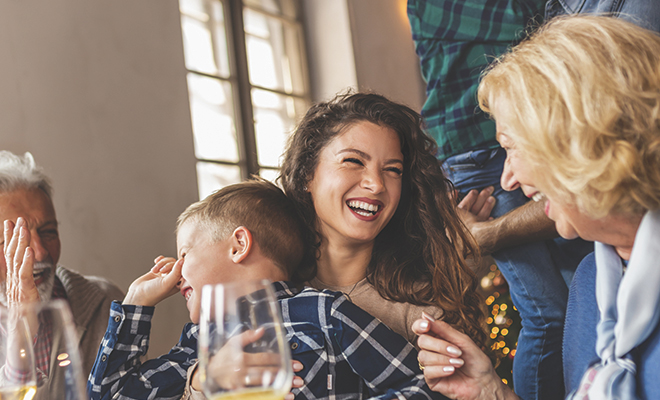
Please Pass the Platter and the Tradition
For many, holidays would not be complete without a traditional family gathering with a multitude of foods in dishes spread across a mishmash of tables at Grandma’s house. It’s time to dig in.
However, last year’s traditional dinner did not go smoothly. The potatoes were lumpy, the pumpkin pie served more like soup and the burnt turkey set off the smoke detector. It’s apparent the job has become too cumbersome for your elderly loved ones. Your holiday celebration may need a change but it could be easier said than done. The institution of creating and consuming that turkey and trimmings is deeply embedded in your happiness.
“Traditions are a way of keeping consistency. As the world continues to change, we have these things that we can come back to, these things that are familiar, touchstones, that reflect to us that everything is okay,” noted Gregory Nawalanic, PsyD, clinical director of psychology and behavioral sciences, The University of Kansas Health System. “It’s a nice communication of the importance and value of family, especially in the wake of the pandemic. It’s about familiarity, comfort and connections. These are the things that keep us centered.”
Proof in the Pudding
Yes, it’s very clear to the “next generation” that something needs to happen for the traditional holiday dinner to continue. But it’s pea soup to your stubborn matriarch or patriarch. Dr. Nawalanic points to an appropriate way to open the discussion.
“When we get trapped in traditions, it happens because no one wants to initiate conversation. It doesn’t have to start with a statement but with a question. ‘Mom, it seems like this is a lot of work for you to do every year. Maybe we can try something else? Let’s share the load,’” stated Dr. Nawalanic. “Maybe you initiate another tradition, which can be hard to evolve, but it’s important to recognize the evolution of tradition by saying that you need to try something different. ‘Mom, how about you make the turkey, and everyone brings a side?’ Remember, it’s not about the food; it’s about the people, the family and the love. ‘Mom, it’s our way to share the love in the same way you shared the love with us through all those years.’”
Even the Pros Learn
Another key to success could be asking for Grandma to become your teacher and begin a new tradition. Not only does it involve the matriarch, who may be a bit reluctant to give up her part, but the results are valuable kitchen learnings to pass on to another generation.
HERLIFE Magazine Culinarian Lauren Lane knows the importance of this role. Unfortunately, her mother and mother-in-law passed away before the “technology transfer” occurred and the traditional holiday dinner landed on Lauren’s plate.
“It would’ve been nice had there been a transition and a coaching phase. My first Thanksgiving on my own was a disaster. My turkey was still raw, my corn casserole was still frozen and my pie was burnt. It’s still the running joke,” she mused. “It took a long time to get to where I am today.”
Other Recipes for Success
Another suggestion to ease the move to a new tradition is creating a family cookbook, and everyone is welcome to contribute. Now, it’s not just Grandma’s dishes, but members can participate with a favorite food.
“It’s creating a special connective document for the family, and it becomes a new investment for them,” Dr. Nawalanic shared. “Traditions are a way to still enjoy Grandma’s sweet potato casserole that she shared with us even though she has passed on. When we make that dish, we remember her and maintain that connection viscerally. You can almost convince yourself she’s still there.”
Perhaps Grandma isn’t quite ready to give up her role. Then consider asking every attendee to bring a dish to enjoy, including the turkey, which could be purchased at the local grocery and delivered or baked at another home. You may need the room that Grandma’s house offers for your large family, but this relieves her of the burden of completing the entire meal. And everyone cleans up!
Be creative with traditions. Perhaps your holiday meal changes to a picnic in the park. Maybe it becomes snacks and desserts or a buffet of soups and breads. Or you decide to volunteer at a community kitchen or visit relatives in assisted living facilities. Although years ago it might have been shunned, if you plan far enough in advance, you can go out to eat, which relieves everyone of the cooking burden. Or you can purchase the entire meal from a restaurant or grocery for delivery.
“Try extending your traditions to something different,” commented Dr. Nawalanic. “Truly, it’s about coming back to the connection, that love and the real meaning of the holidays, which is taking stock of your family, connecting and being grateful for what you have.”







